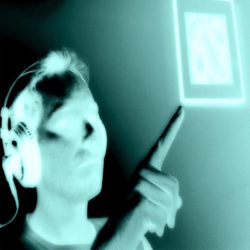“The function of Taoism is to undo the inevitable damage of this discipline [the socially necessary task of forcing the original spontaneity of life into the rigid rules of convention], and not only to restore but also to develop the original spontaneity (…)” (p. 10) The way of zen, Alan Watts
“To be free from convention is not to spurn it but not to be deceived by it. It is to be able to use it as an instrument instead of being used by it.” p.11
“It would be impossible, in their [the Taoist’s] view, to believe oneself innately evil without discrediting the very belief, since all the notions of a perverted mind would be perverted notions. (…) Reason cannot be trusted if the brain cannot be trusted, since the power of reason depends upon organs that were grown by ‘unconscious intelligence’.” (p.21-2)
Taoism is a way of liberation. “It is a liberation from convention and of the creative power of te.” (p.28)
Joseph Needham, in Science and Civilization in China, “draws attention to the essential differences between Hebrew-Christian and Chinese views of natural law, the former deriving from the ‘word’ of a lawgiver, God, and the latter from a relationship of spontaneous processes working in an organismic pattern.” (p.17)
From Body and Mature Behaviour, by Moshe Feldenkrais: “Every method of psychotherapy is correct on one point or another. The problems involved have so many facets that this is possible. They are all wrong in pretending to have solved the whole problem.” (p.3)
“While expecting hopefully that the environment will be changed by our collective efforts, we must also make sure that everything amenable to human influence in each individual is used to facilitate adaptation. This will not only eliminate much misery in the present generation but will also give a better chance to the next.” (p.8)
“We do tolerate certain limitations, physical and mental, just because we do not know that they are amenable to our influence. The results of faulty habits are called character or chronic diseases which, as their name suggests, are incurable. And improper use of oneself is explained as unfortunate inheritance or permanent deformation.” (p.8)
“The whole nervous system is found to be composed of hierarchical entities, each overriding its immediate subordinate, each in its own turn being subject to a similar influence from its superior.” (p. 17)
From The way of zen: “Furthermore, the function of negative knowledge is not unlike the uses of space–the empty page upon which words can be written, the empty jar into which liquid can be poured, the empty window through which light can be admitted, and the empty pipe through which water can flow. Obviously the value of emptiness lies in the movements it permits or in the substance which it mediates and contains. But the emptiness must come first. This is why Indian philosophy concentrates on negation, on liberating the mind from concepts of Truth. It proposes no idea, no description, of what is to fill the mind’s void because the idea would exclude the fact–somewhat as a picture of the sun on the windowpane would shut out the true sun’s light.” (p.37)

